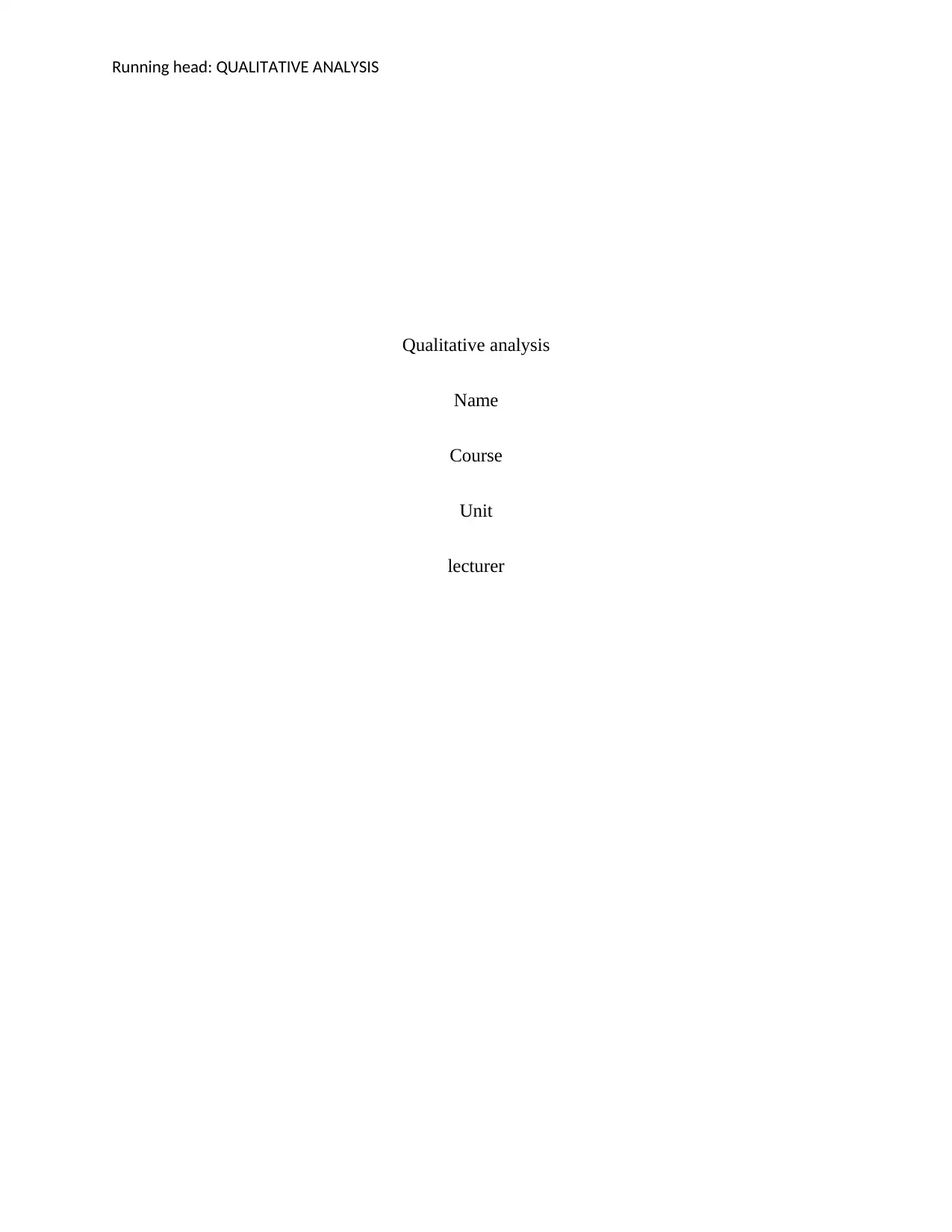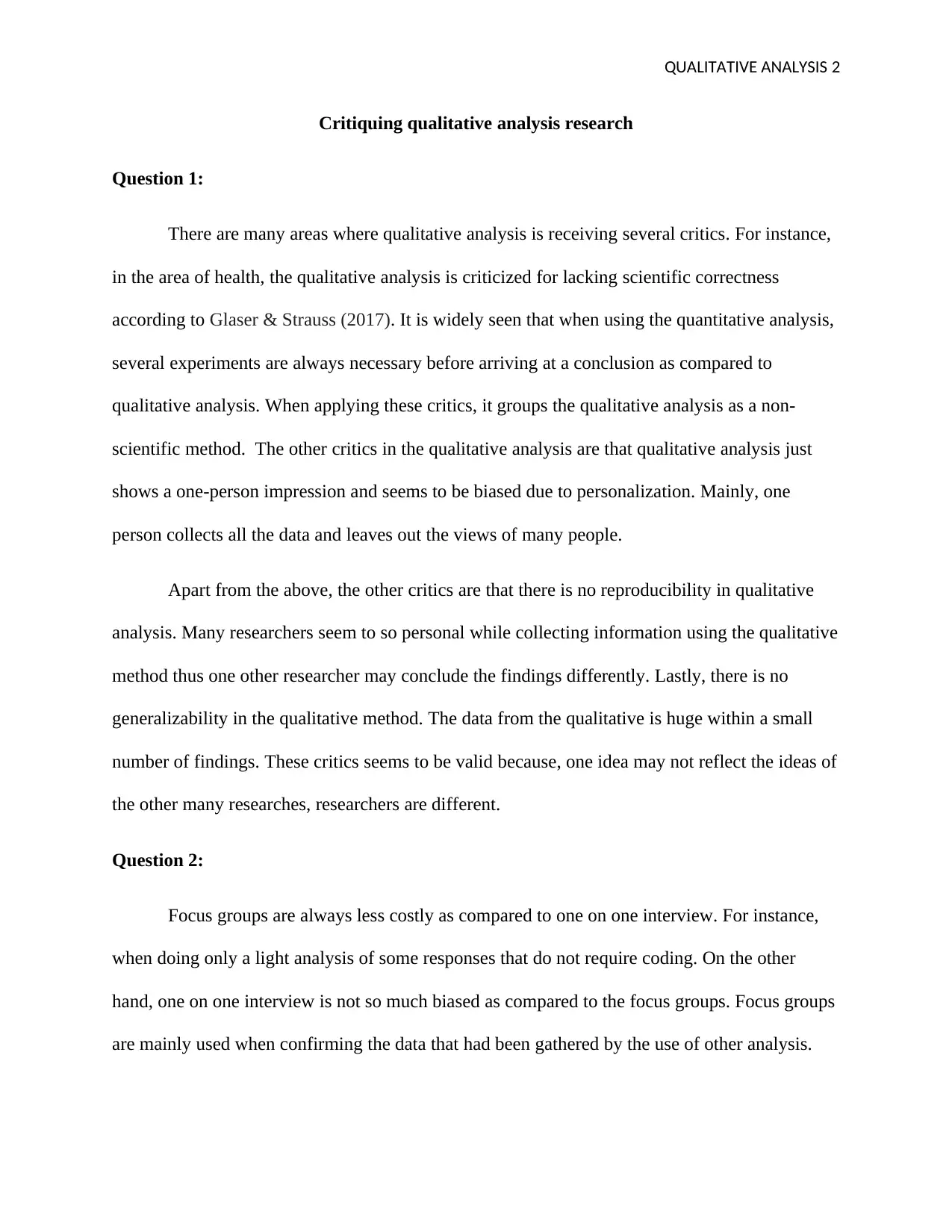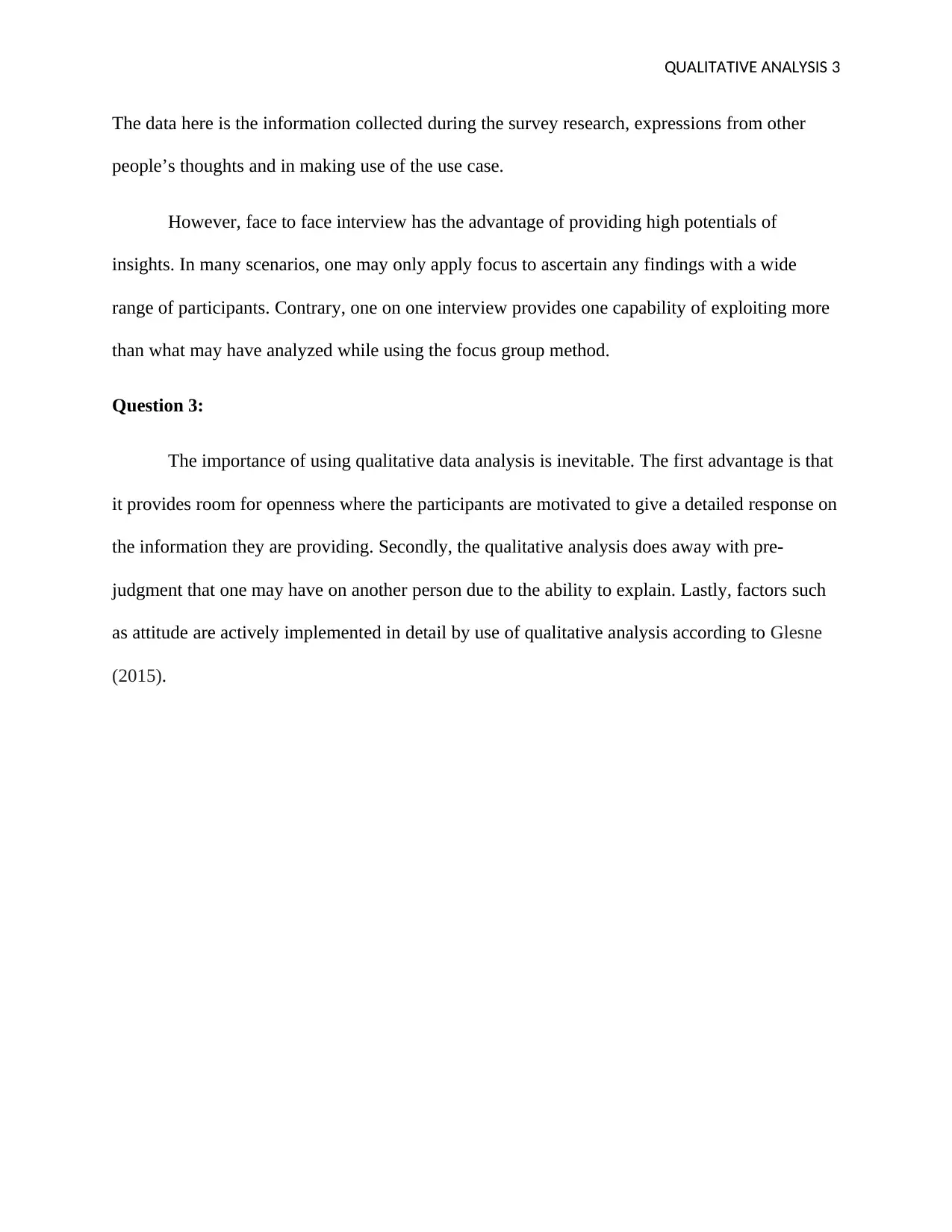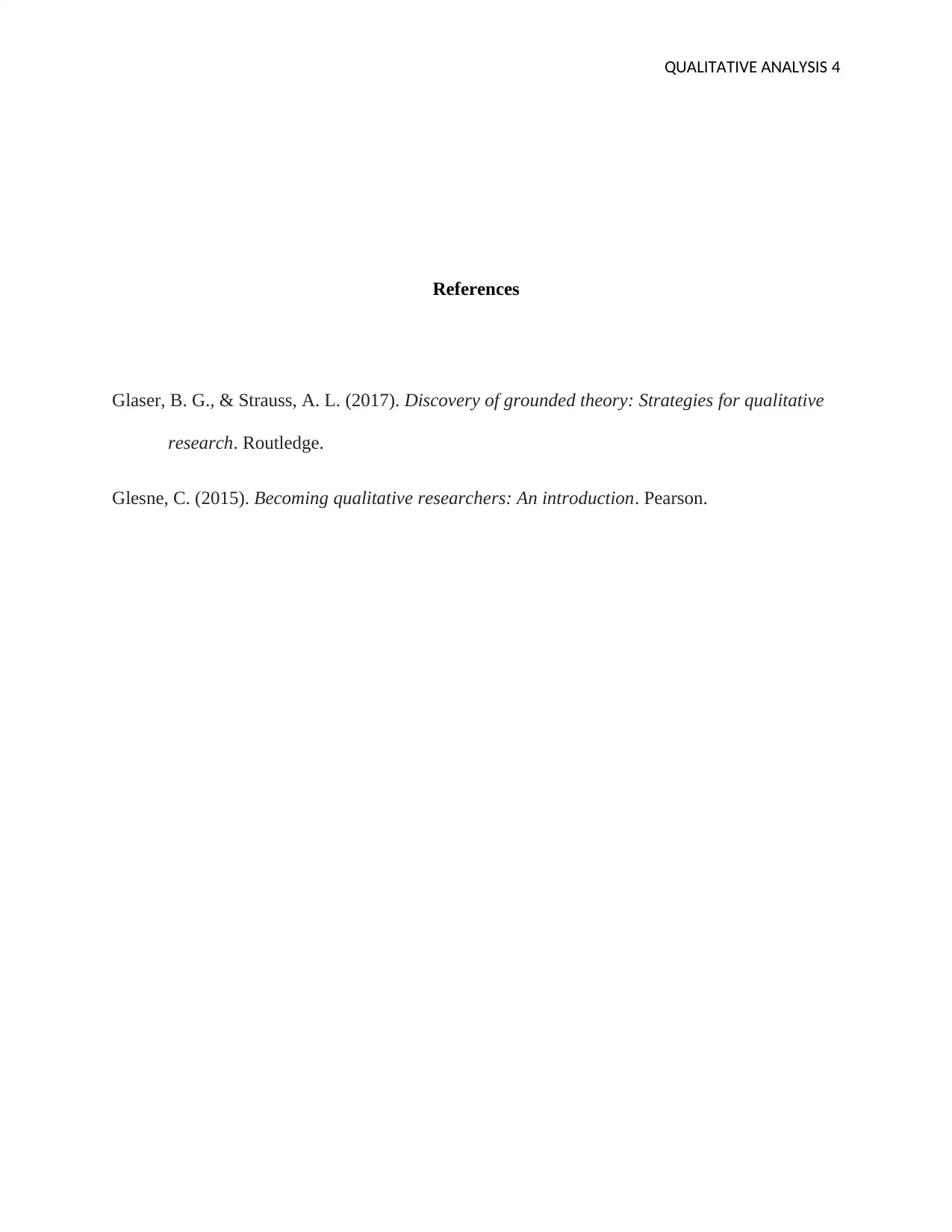In-Depth Qualitative Analysis: Critique, Focus Groups, and Importance
VerifiedAdded on 2023/06/10
|4
|534
|248
Essay
AI Summary
This essay provides a comprehensive critique of qualitative analysis, addressing common criticisms such as the lack of scientific correctness, potential for bias, reproducibility issues, and limited generalizability. It contrasts focus groups with one-on-one interviews, highlighting the cost-effectiveness of focus groups for light analysis and the reduced bias and higher potential for insights in one-on-one interviews. The essay also emphasizes the importance of using qualitative data analysis, noting its ability to foster openness, eliminate prejudgment, and incorporate attitudinal factors in detail. The document concludes by referencing key works in the field, underscoring the value and application of qualitative research methods. Desklib offers similar solved assignments and study tools for students.
1 out of 4











![[object Object]](/_next/static/media/star-bottom.7253800d.svg)